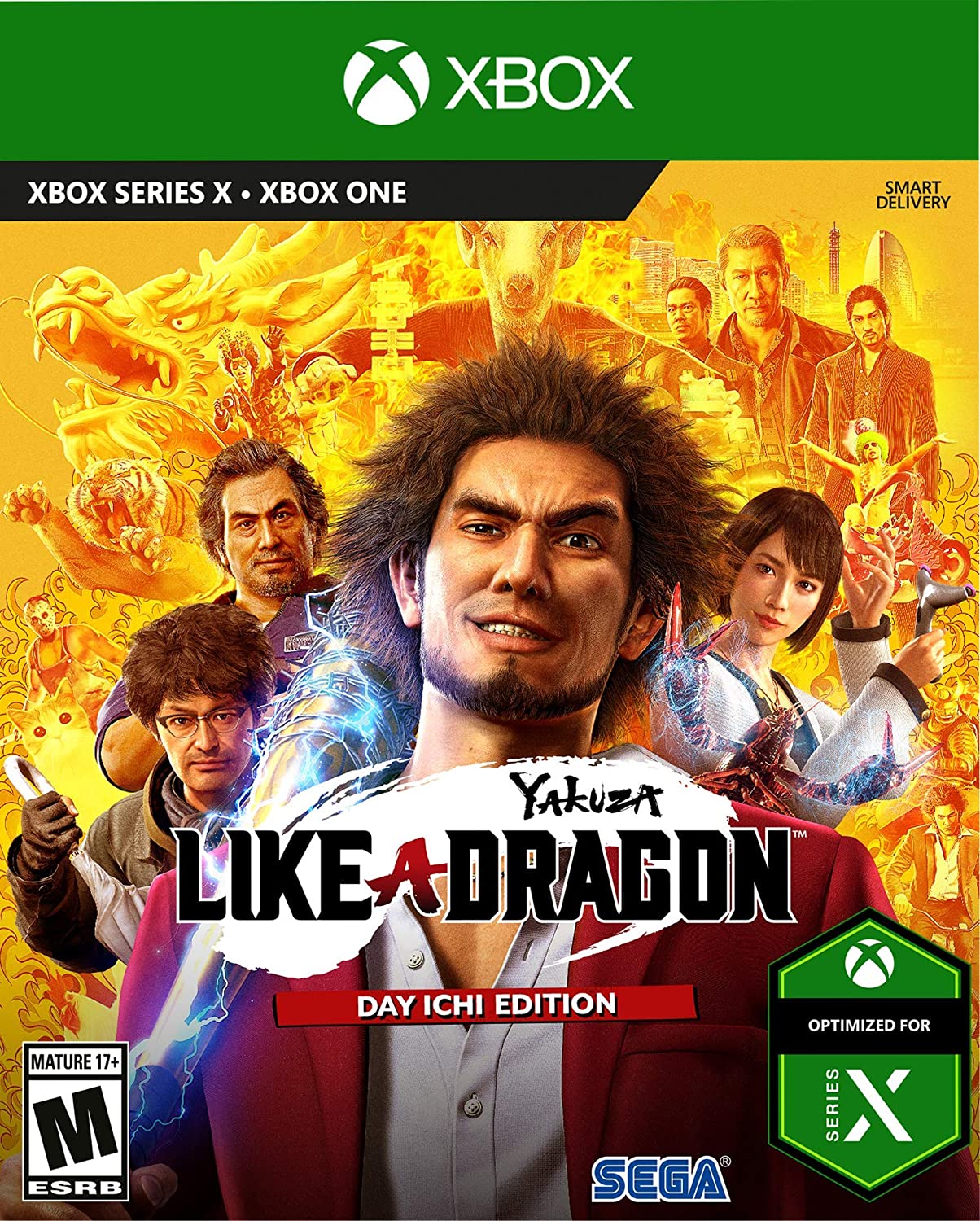Yakuza: Like A Dragon
Developer: Ryu Ga Gotoku Studio
Publisher: Sega
Platforms: Xbox One (Reviewed), PC, PlayStation 4, Xbox Series X
Release Date: November 10, 2020
Price: $59.99 USD – Available Here $99.95 AUD – Available Here
Overview
There comes a time in every long running series that someone wants to try something a bit different and when it comes to the Yakuza series, the best time for that was after the events of Yakuza 6. Sure, prequels and remakes of the original few releases in the series were a nice way to bring newcomers into the fold but it was time for something brand new that changed the series mostly from the ground up and that happens is what Sega has attempted with Yakuza: Like A Dragon. Featuring a brand new protagonist, a new combat system, and even mostly focusing on a new location, is this latest entry in the franchise a worthwhile risk?
Story
Now let’s get things out of the way real quick, while the Western release of Yakuza: Like A Dragon is being treated mostly like a game on its own, it is still part of the mainline series and is even directly called the seventh entry in the core franchise in the Japanese release. Newcomers who have not played any of the latter games in the Yakuza series may not find themselves too confused about most of the events in Yakuza: Like A Dragon as it still serves as its own narrative but not only are there numerous references and callbacks to previous events in the franchise but some late story developments may leave newcomers a bit stumped so players should be prepared for that especially since there is no simple in-game way to learn about past events in the series’ history.

Anyways, Yakuza: Like A Dragon follows the brand new protagonist Ichiban Kasuga who players quickly learn is as straightforward and enthusiastic as they come. Within the first few hours of playing as Ichiban it becomes clear that, despite being a yakuza, he follows a strict code for heroism, partially due to his rather rough upbringing and seeking solace in the heroes found in video games, As such when he is asked to take the murder rap for a higher up in his yakuza clan’s family, he happily abides even if it means going to jail for fifteen years right at the turn of the century. With the hope of being welcomed with open arms, Ichiban willingly accepts his prison term but a fight that tacks three additional years onto his sentence not only extends his time in jail but leaves him out in the cold once he is released from prison.
Eighteen years behind bars places Ichiban’s story a few years after the final events of the previous Yakuza games meaning that he is now living in a world where all of those events have played out and, in many ways, allows players to view his experience as something entirely new, which as mentioned before works well for newcomers throughout at least half of the game. To avoid spoiling things we’ll avoid going into detail but viewing Ichiban’s rise from the literal bottom makes for an incredibly interesting experience and one that highlights a few parts of life that very few people, let alone games, get a chance to see and explore as we see people at the lowest points in their lives still striving to make a living and survive.
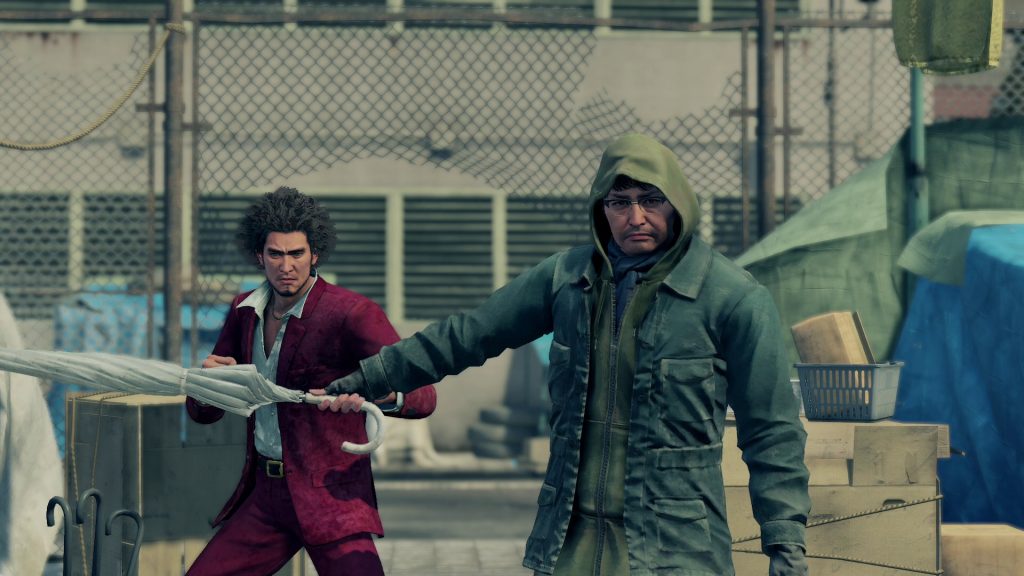
Ichiban may serve as a great new protagonist but he is also accompanied by an engaging group of party members that all come from different walks of life and have been experiencing hard times. Learning more about these characters and their personalities as well as interacting with them while walking through the unique streets of Isezaki Ijincho and Kamurocho makes for a real treat. This allows for not only the core story to develop rather nicely as Ichiban’s rise from the bottom is as an engaging mystery as ever but Yakuza: Like A Dragon’s side-stories and supporting cast pull their weight just as strongly, making for an exciting and brand new story that is steeped in lore that may go over some newcomers’ heads.
Gameplay
The biggest change in Yakuza: Like a Dragon comes in the way that it handles combat. Players will still be able to openly roam the streets, enter shops to buy items, search under vending machines for loose change as a new feature, take part in both familiar and new mini-games, and of course encounter plenty of random people wanting to throw down with Ichiban and his friends. Unlike the action brawler that it previously was, Yakuza: Like a Dragon features a turn based battle system where the face buttons are used to make basic attacks, guard, use skills, or use an item. As usual skills take MP to use and can provide various elemental damage, boost the stats of the party, heal members of the team, debuff enemies, and more while attack skills now make use of mashing X or properly timing Y to deal out additional damage. Even when the enemy is attacking players can play an active role by pressing the defense button when struck for a “perfect guard” that reduces incoming damage, making sure players are able to stay on their toes.
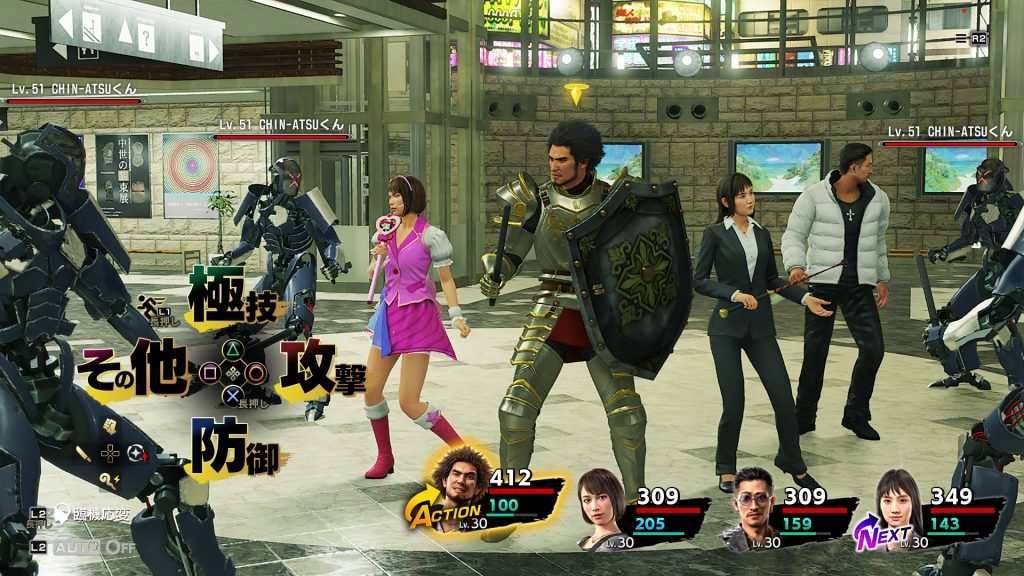
For the most part, Yakuza: Like a Dragon‘s switch to a turn based system works rather well as battles are more interesting and a bit more strategic than they previously were as enemies will have weaknesses to certain elements, can be knocked down to deal additional damage with a follow-up blow, and more but there are some hiccups here that generally boil down to poor pathing and a certain lack of control. In battle all fighters will roam the area at will with players having no control of how they actually move outside of pointing them toward a target they want to attack. This means some elements, such as kicking or picking up a garbage can to use as a weapon, cannot be used effectively if the character moves slightly to the side or runs into another enemy and finds their attack interrupted. More than a few times there were also moments that, in a tight location, characters would get stuck having to move around a car or guard rail to actually use their attack, breaking the flow of battle. This also becomes a problem when using AoE skills as players may issue an order when everyone is grouped up only to find them spaced out entirely by the time the character saunters over to attack.
In interesting fashion, players will eventually obtain the ability to change their character’s job. These jobs all have a number of skills at their disposal and level up separately from the character themself, allowing for players to tinker with every character’s playstyle a bit until they find a party set-up that they prefer. It is worth noting that to change jobs Ichiban will need to have his personality attributes at certain levels, such as Passion and Intelligence, with these being raised by completing tasks, selecting certain dialogue choices, and more while the party can change their jobs depending on their relationship with Ichiban as players can interact with their party both at their base of operations as well as talk with them while walking around in the city. Considering that only one job can be leveled at a time and changing from that job takes any stat gains with it, players are a bit deterred from experimenting too much, especially since the game can feature a bit of a brutal difficulty curve at times, putting brawler fans in a tougher situation but this level of challenge should be welcoming for most RPG fans.
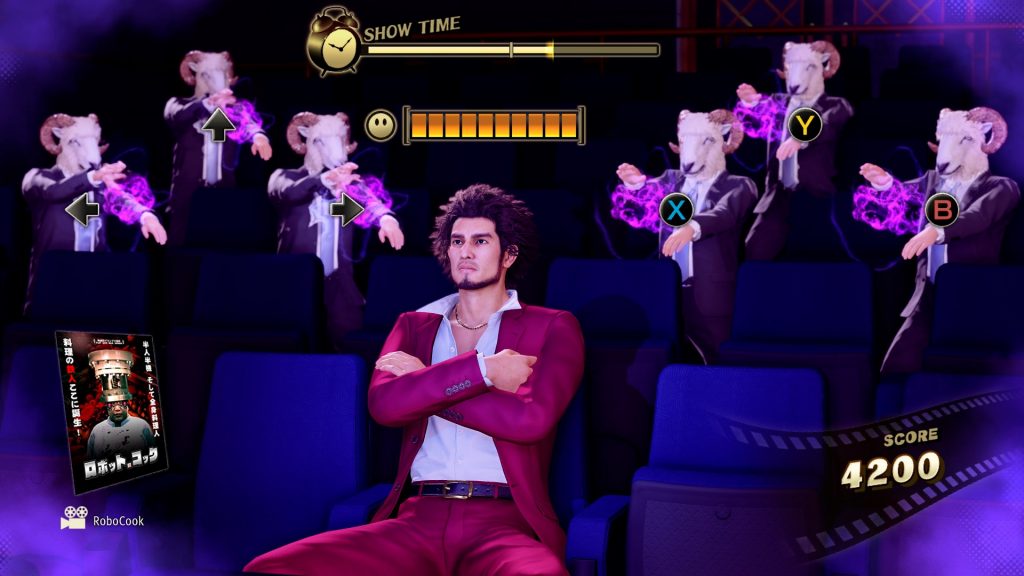
Outside of combat and class changing Yakuza: Like A Dragon features most of the classic elements that make the series as memorable as it is. Players can make use of an over-the-top summoning system that will be an absolute delight every time it is used, even if it costs a fee sometimes, take part in many classic tabletop games and arcade games in the Sega arcades in the city, take part in Sonic Racing style go-kart races through the streets in “Dragon Kart,” and even collect enemy types in the Sujidex that documents the many incredibly odd enemies that Ichiban will face off against, management simulation, and more to give players plenty of things to do outside of the core gameplay loop should they choose to.
Visuals & Audio
Now it is worth noting that this review is of the Xbox One version of Yakuza: Like a Dragon but even then this release of the game features incredibly detailed looking character models and over-the-top special effects for some of the crazier skills that players can unleash on their enemies. A lot of credit can also go into the strange and unique enemy designs that players encounter as Ichiban’s “Dragon Quest” mind sees even standard looking thugs morph into the strangest of humans. The only real obvious downsides here come in the form of some rough looking textures throughout the city in places as well as some long load times, though it is worth noting that the overall design and layout of the city players explore is still phenomenal and will likely only be improved in the Series X version of the game.
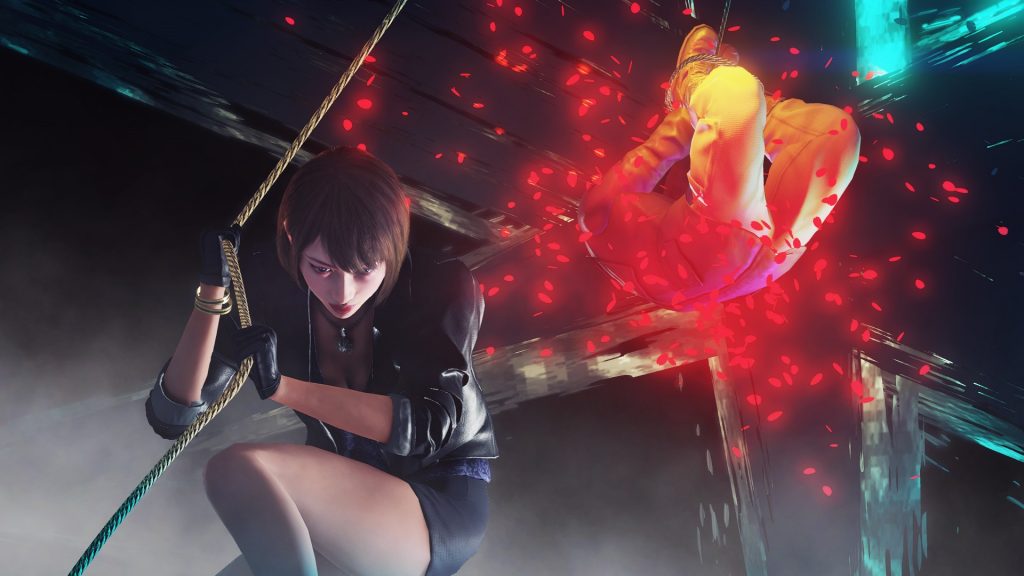
This also marks the first time since Judgement that a Ryu Ga Gotoku game has been given an entire English voice over should the player choose to use it. The English voice cast has done an incredible job voicing the characters here though players always have the option to switch back to the Japanese voice cast should they choose. It is worth noting that even with the English voice work option being selected some of the generic dialogue from shopkeepers will still be presented in Japanese.
Overall
Sega took a big risk when they made so many changes to the standard formula for Yakuza: Like A Dragon but thankfully none of these changes have hurt the game in any way and have only made a more unique experience. While it is not as “welcoming” to newcomers as it may initially seem, the story presented here is an engrossing one that tackles subjects rarely touched upon all while offering a new combat system that has a few hiccups but comes together as a solid experience that could only grow from here.
Capsule Computers review guidelines can be found here.


